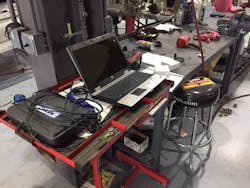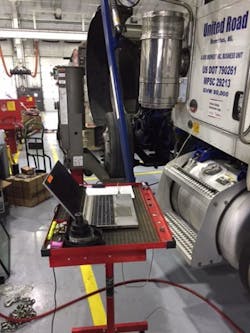Device interoperability: It could be a concern for trucking
As we rush headlong into the newfangled “digital world” of e-commerce, the Internet of Things (IoT), and connected trucks, an interesting concern is being raised among consumers that motor carriers may want to pay attention to: device interoperability.
One of the key benefits held out by IoT advocates is that by connecting an ever widening range of devices and products through a common electronic communication network, we’ll not only be able to make vast efficiency gains across a range of endeavors but make daily life easier in the process.
Indeed, those two philosophical points underpin the promise of the IoT where global logistics and freight transportation is concerned, as this story explains.
But what if those devices and products – smart phones, tablet computers, smart trucks, and connected refrigerators, just to name a few items – can’t communicate properly? Moreover, what if different brands of smart phones or smart trucks can’t talk to each other? What happens to the much ballyhooed progress offered by the IoT then?
That’s a worry touched on in a recent survey conducted by The Open Connectivity Foundation (OCF) at the 2017 Consumer Electronics Show (CES) in Las Vegas earlier this year.
Though it’s a small sample size – just 250 respondents – OCF’s poll illuminated some big concerns:
“Currently, IoT vendors are faced with multiple, competing de facto standards and protocols from which they must choose, causing fragmentation in the marketplace that often hampers the ability of devices from multiple manufacturers to interoperate,” noted Joonho Park, OCF’s executive director, within the report.
He added that while the IoT market is “growing and changing rapidly,” the lack of industry consensus on open standards and protocols hinders its growth potential. Without seamless interoperability among connected devices, regardless of brand or manufacturer, the IoT cannot reach its full potential, Park warned.
“Those survey results are a clear indicator that the issue of interoperability has come to the forefront of consumer concerns when it comes to the IoT,” he pointed out. “With a unifying standard in place, which provides a consistent standard of security, privacy and device definitions, we can defragment the market to ensure the future entails a world where all devices, despite vendor, can communicate with one another and the IoT can reach its full potential.”
Something to consider as the trucking industry is only going to become a more and more connected entity in the days ahead.

